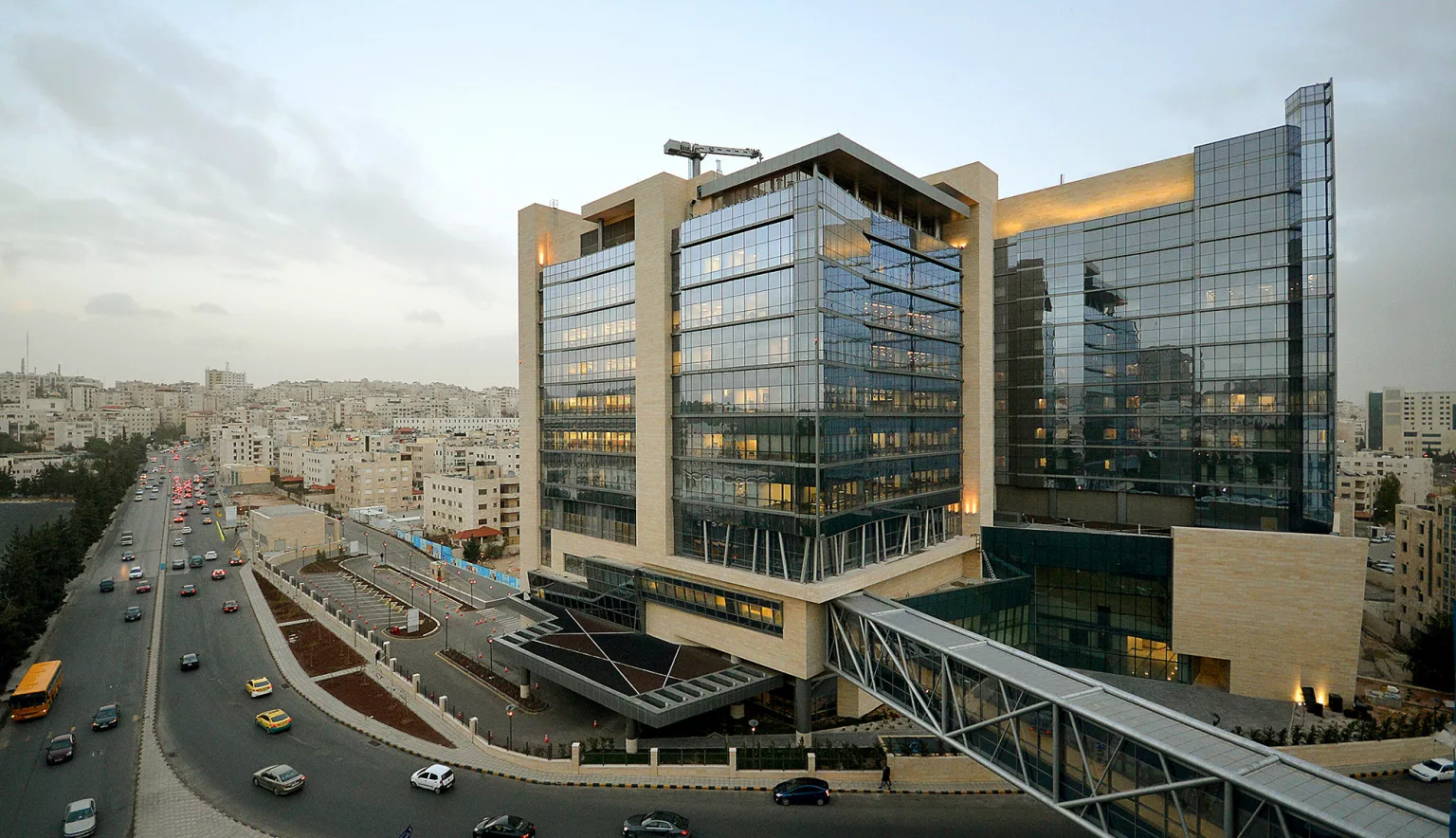Jordan’s King Hussein Cancer Center recently doubled its capacity to provide leading-edge treatment to one of the world’s most deadly diseases.
THE GO-TO FOR CANCER CARE
Cancer – one of the most high-profile illnesses and second leading cause of death in the world.
The World Health Organization (WHO) estimates that the disease will be responsible for 9.6 million deaths this year, or one in six mortalities. Arrow in on low- and middle-income nations, and you will find that 70 percent of all cancer deaths occur in these countries.
There is also an enormous economic impact associated with the condition – the total annual economic cost of cancer in 2010 was estimated at approximately $1.16 trillion, a figure which is rising.
In the Middle East, the WHO predicts that cancer cases will double by 2030.
If the region, and indeed the world is to tackle this growing threat, then the work carried out by the likes of Jordan’s King Hussein Cancer Center (KHCC) is going to be vital.
Established by Royal decree back in 1997, Amman-based KHCC now treats more than 60 percent of all cancer cases in Jordan, with survival rates comparable to anywhere else in the developed world.
Developed in collaboration with leading institutions from around the world, the centre’s clinical cross-departmental services cover: breast cancer, gastrointestinal malignancies clinic, adult lymphoma, head and neck, thoracic, gynaecological malignancies, sarcoma, adult neuro-oncology, genitourinary malignancies, thyroid, adult leukaemia, adult ocular oncology, paediatrics solid tumours, paediatric neuro-oncology, and paediatric leukaemia services.
Such work will continue to be critical if Jordan is to remain comparable with developed nations in terms of cancer treatment. The disease is the second leading cause of death in the country, with heart disease the only cause claiming more lives.
The top three most common cancers among males in Jordan are colo-rectal (colon) cancer, lung cancer and bladder cancer, while the most prolific forms among Jordanian females are breast cancer, colo-rectal (colon) cancer and thyroid cancer.
The disease also impacts children in the country. In 2011, 207 cases of cancer below the age of 15 were reported, the most prevalent being leukaemia, lymphoma and brain tumours.
COMPREHENSIVE CARE
KHCC is accredited by the Joint Commission International as a disease specific cancer centre, making it the first and only centre in the developing world to earn such a distinction.
The organisation is led by Dr Asem Mansour, CEO and Director General, and falls under the umbrella of the King Hussein Cancer Foundation (KHCF).
The foundation’s Chairperson, HRH Princess Ghida Talal, states in her website message: “At KHCC, it is our conviction that no one should ever be deprived of a real chance for a cure.
“Towards that goal, a brand-new expansion to KHCC has opened its doors and will uphold our mission of providing the most advanced care to our patients. Equipped with state-of-the-art technology, this new facility will absorb up to 7,000 new cancer patients annually and offer the most advanced services, including performing 300 bone marrow transplants a year.”
This refers to an ambitious expansion project which opened its doors back in September 2017.
Having been stretched to its limit and operating at full capacity, KHCC broke ground on the project in 2011, and is able to accept an increasing number of patients from the GCC and underprivileged countries such as Palestine, Iraq, Syria, Yemen and Sudan.
The expansion comprised of a new inpatient tower and outpatient building which combine to effectively double KHCC’s capacity.
The former, spanning 13 floors, is fitted with 179 beds in single occupancy rooms, an expanded diagnostic imaging and radiotherapy unit, an expanded bone marrow transplantation unit, adult and pediatric speciality intensive care units, and floors specifically dedicated to pediatric and adult patient wards.
The 10-storey outpatient building contains the Khalid Shoman Educational Center and Auditorium, which includes a skills lab, seminar rooms, a physician’s library and a social interactive lounge. It also houses dedicated space for women and children alongside a cutting-edge cell therapy and applied genomics department.
With the number of new cancer cases set to rise at a higher rate than Jordan’s population growth by 2020, this boost to capacity at KHCC could not have come at a better time.
CARE FOR THE COMMUNITY
Another important element to consider is that KHCC is a non-profit organisation that relies on support from corporate, institutional and individual donors to operate.
One popular scheme leading to important funding contributions is the ‘Naming and Recognition’ programme, whereby organisations can name a room or area at KHCC in exchange for a donation.
In October 2018, the centre signed a memorandum of understanding with Electricity Distribution Company, which donated more than $70,000 to name a waiting room.
Speaking at the announcement, KHCF Director General Nisreen Qatamish commented: “We are immensely grateful to the Electricity Distribution Company for its strong faith in our mission.
“The partnerships being forged through the Naming and Recognition programme are all tremendously important to us as this programme offers a unique, unparalleled method of support, creating an association between the chosen names and everlasting positivity and hope.”
Such support from the community will ensure KHCC is able to provide life-saving treatment to thousands of Jordanians and citizens from other countries across the region.
In his message on the centre’s website, Dr Mansour writes: “Every day, cancer patients at KHCC win their battles against this complex disease and go on to live healthy, active and productive lives.
“This has long been the focus for our centre and will remain its focus in the years to come; to make the continual strides needed to ensure the best, comprehensive cancer care to patients of all ages, genders and nationalities.”






























